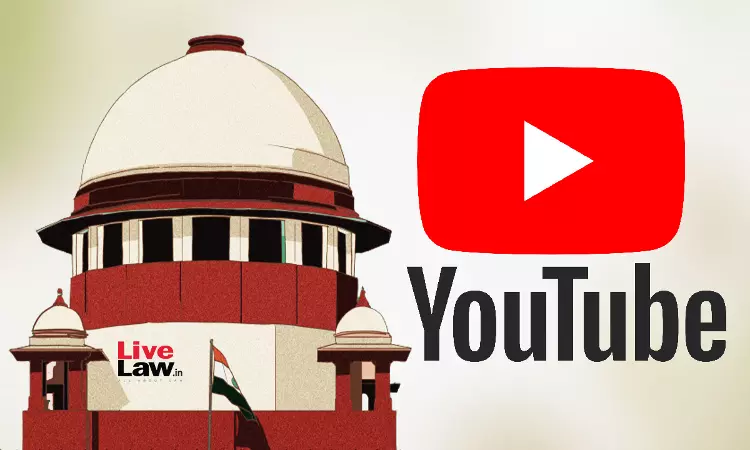- Home
- /
- Top Stories
- /
- 'Courts Are There To Convict Or...
'Courts Are There To Convict Or Acquit; YouTube Cannot Substitute Courts' : SC While Hearing Crime Reporter's Plea
Amisha Shrivastava
26 July 2025 10:20 AM IST
The Supreme Court on Friday observed that YouTube presentations cannot replace the judicial process and criticised a Kerala based journalist for his video allegedly targeting a prominent woman politician. The journalist has claimed that the video was meant to encourage public discussion and fight corruption.A bench of Justice Nagarathna and Justice KV Viswanathan was hearing the anticipatory...
The Supreme Court on Friday observed that YouTube presentations cannot replace the judicial process and criticised a Kerala based journalist for his video allegedly targeting a prominent woman politician. The journalist has claimed that the video was meant to encourage public discussion and fight corruption.
A bench of Justice Nagarathna and Justice KV Viswanathan was hearing the anticipatory bail plea of Nandakumar TP, who is facing prosecution over a video uploaded on his YouTube channel “Crime Online”.
Responding to the submission of the petitioner's counsel that the video was intended to encourage public discussion, Justice Nagarathna said, “What public discussion? Courts are there to convict or acquit. YouTube presentations cannot substitute a court of law”.
The counsel for the petitioner submitted that the statements referred to in the video had originally been made by the then Chief Minister in 2011, and that the petitioner had only made a factual reference.
In response, Justice Nagarathna said, “You want to convict people based on your YouTube presentations? Conviction or acquittal doesn't happen based on a YouTube video. Courts do that.”
The Court also expressed concern over the broader use of YouTube for such content. “What is YouTube being used for!” Justice Nagarathna remarked, questioning the motive behind publishing the material online. “Say some nice things on YouTube. Why do you put this crime online etc? Something nice happening in Kerala, God's own country, speak about that”, she added.
She further asked, “Why do you want to speak all this on YouTube? Why is the party indulging in all this?”
The petitioner's counsel highlighted the woman involved had not filed any complaint against those who initially made the remarks.
Justice Nagarathna continued, “Write something nice. Nobody will watch? If negative things are spoken, bad things are spoken, it attracts attention.”
When the counsel said the petitioner was fighting against corruption, she observed, “This is not the way to fight against corruption.”
At the end of the hearing, the counsel for the State of Kerala sought time to take instructions and file a counter affidavit, if necessary. The Court adjourned the matter by three weeks and extended the interim protection from arrest granted earlier.
Background
Nandakumar is facing allegations of publishing a video containing derogatory, sexually coloured, and threatening remarks against a woman politician, allegedly intended to insult her modesty and harm her reputation.
The FIR against him invokes Section 75(1)(iv) (insulting woman's modesty), Section 79 (intimidation and intent to cause reputational harm), and Section 351(1)(2) (disseminating obscene content electronically) of the Bharatiya Nyaya Sanhita, 2023, along with Section 67 of the Information Technology Act, 2000 (publishing or transmitting obscene material in electronic form).
The Kerala High Court, by its order dated June 9, 2025, had directed Nandakumar to surrender before the police. He approached the Supreme Court challenging the High Court's refusal to grant anticipatory bail.
On June 18, a vacation bench issued notice in Nandakumar's anticipatory bail plea and granted interim relief. The Court directed that in the event of arrest, he shall be released on bail by the jurisdictional trial court on furnishing bail and bonds to the satisfaction of the investigating officer, and he must cooperate in the investigation.
The Court recently voiced concern over misuse of social media by citizens, stressing the need for self‑regulation and restraint.
Case no. – SLP(Crl) No. 9098/2025
Case Title – Nandakumar T.P. v. State of Kerala & Anr.



